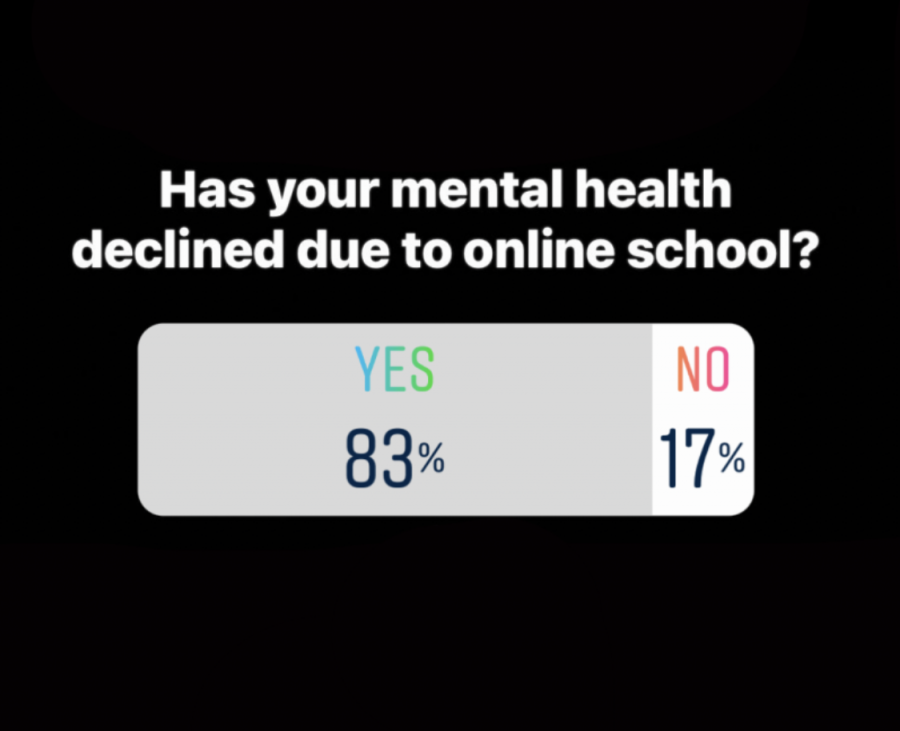The effect of online school on mental health
Photo courtesy of Claire Perlak
133 votes from WS Students
March 16, 2021
A significant increase in pediatric mental health issues has occurred in the United States during this past year. According to the CDC, there has been an approximate recorded 24% increase in mental health issues with children ages 5-11, and 31% in children ages 12-17 between March 2020 and October 2020. Many children have lost motivation to spend time with friends and family, exercise, participate in their usual hobbies, and especially do their school work.
“With online school there’s no accountability for what work you do. At school I feel the pressure from other students and my teachers to do well,” said junior Miku Hansen. “I actually like learning but I feel my teachers aren’t trying to teach anymore. I don’t feel like I’m learning, just trying to turn in assignments for grades.”
Other students said they have experienced similar feelings to Hansen’s. Some even admitted to losing their integrity with online school. With this new way of learning, there are many challenges that students, teachers, and parents must deal with. For example, some parents are required to stay home from work in order for their child to receive an education.
“I try to constantly distract myself. I exercise a lot and try to keep my mind occupied in order to avoid worsening my depression,” said one junior when asked how she copes with her mental health issues.
Everybody copes in different ways when dealing with mental health issues. However, frequent similarities in ages 12-17 include destructive activities such as using drugs and developing eating disorders.
“I hate school. I don’t want to get out of bed. Every day is the same,” said a senior.
When talking to students ages 14-18, multiple students have confessed to cheating in school. Several students explain that they cheat because it is easier than doing their school work themselves and they do not understand when the teacher explains content in class. Students feel pressured to do well and are willing to cheat in order to achieve higher grades. All of these factors contribute to the decline in mental health among students in online school.
Fortunately, in Fairfax County there are plenty of online and in-person resources for one to get the help they might need, judgement-free. For example, on the Fairfax County Public Schools website, there is a page dedicated completely to promoting available tools for dealing with stress, anxiety, and other mental health concerns. Along with websites, there are many mental health care professionals such as psychologists, therapists, and counselors. Taking advantage of these available resources during the pandemic is critical to keeping students in a positive state of mind.





